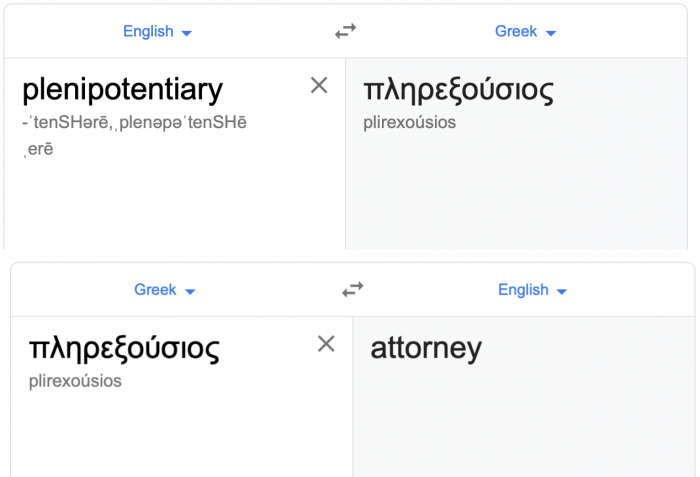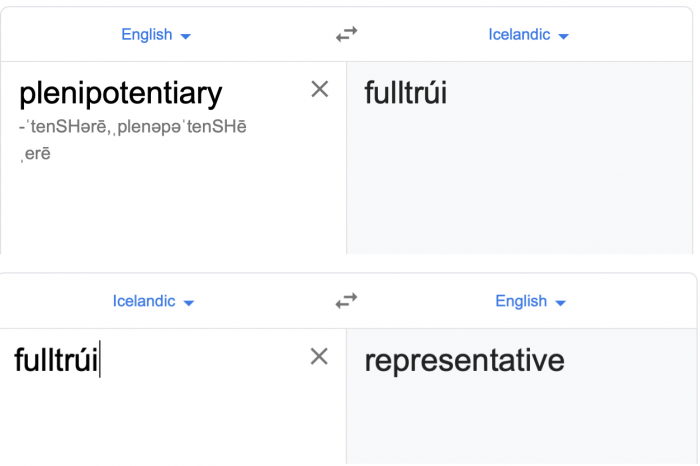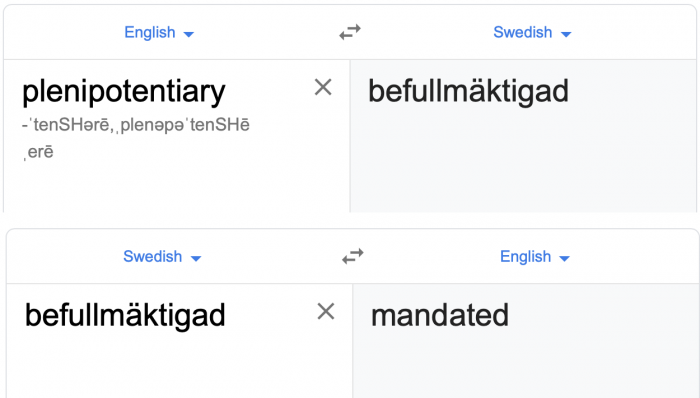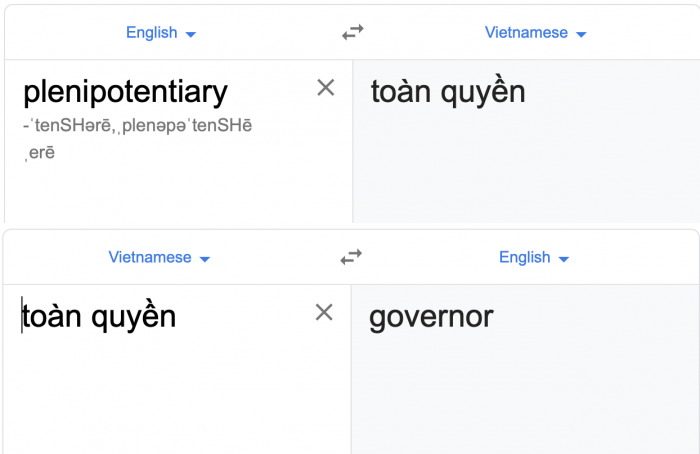Translation Terrors
Q.
Which English words are most difficult to translate?
.
A.
Gobbledegook. Serendipity. Plenipotentiary.
These are the most difficult English words to translate, according to a Today Translations survey of 1,000 linguists. ‘Plenipotentiary’ is the worst.
Plenipotentiary is defined by the Oxford Dictionary as:
plenipotentiary. a person who has full powers to take action, make decisions, etc. on behalf of their government, especially in a foreign country.
He was promoted from minister plenipotentiary to full ambassador.
As predicted, ‘plenipotentiary’ doesn’t travel easily between Google Translate columns.
.
.
.
.
.
.
.
English lawyers and judges have their own fiendish words, not all of which jump nicely from language to language. Garnering the vote for most difficult legal phrases to translate are:
• leapfrog appeal – ‘the procedure for appealing directly to the House of Lords from the High Court or a Divisional Court, bypassing the Court of Appeal. The procedure is only allowed in exceptional cases…’ (there is more, courtesy of the Oxford Dictionary of Law)
• toxic tort – when the plaintiff claims exposure to a dangerous, even poisonous chemical.
• Michaelmas term – one of the four terms into which the legal year is divided.
.
.
In moving beyond English, the 1,000 linguists identify the most untranslatable words cross-language:
i. ilunga – Tshiluba word for a person who is ready to forgive any abuse for the first time, to tolerate it a second time, but never a third time.
ii. shlimazl – Yiddish for a chronically unlucky person.
iii. radioustukacz – Polish for a person who worked as a telegraphist for the resistance movements on the Soviet side of the Iron Curtain.
iv. naa – Japanese word used only in Kansai area of Japan, to emphasize statements or agree with someone.
v. altahmam – Arabic for a kind of deep sadness.
vi. gezellig – Dutch for cosy.
vii. saudade – Portuguese for a certain type of longing.
viii. selathirupavar – Tamil for a certain type of truancy.
ix. pochemuchka – Russian for a person who asks lots of questions.
x. klloshar – loser in Albanian.
Though some of these concepts may seem fairly straightforward, the linguists note the difficulty in imbuing translation words with the appropriate cultural connotations. Once we get the hang of ‘ilunga,’ it might help us figure out that whole ‘fool me once’ thing.
.
Here’s a popular Ted-Ed video that talks about another word that is particularly difficult to translate:
.
www.justcurious.ca
Header Photo: Mario Dobelmann
Photo 2: Thijs Degenkamp
Photo 3: Antonio Molinari















